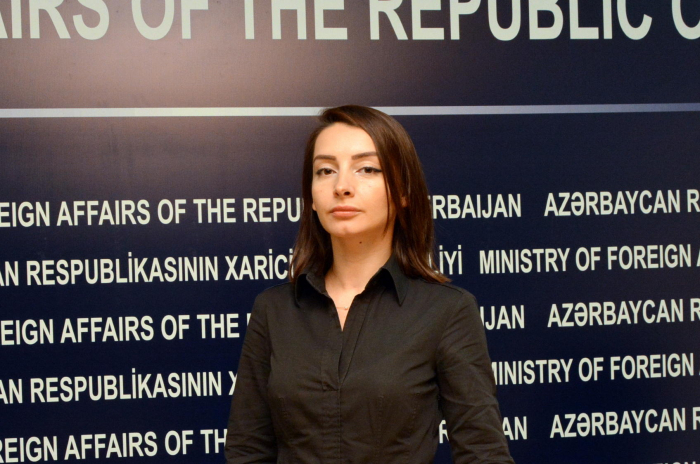Abdullayeva was commenting on Pashinyan’s statement during his visit to Germany about “concessions of the Azerbaijani side, the acceptability of the conflict’s settlement for the peoples of Nagorno-Karabakh and Armenia.”
“First of all, I would like to remind that as a result of the conflict, namely Azerbaijan’s Nagorno-Karabakh region and seven adjacent districts were occupied, and about a million of Azerbaijan’s population was subjected to ethnic cleansing and became IDPs,” said Abdullayeva.
She noted that international resolutions and documents adopted in connection with the conflict, first of all, the four UN Security Council resolutions require the complete, immediate and unconditional withdrawal of invading Armenian troops from the occupied Azerbaijani territories.
“I would also like to say that all documents adopted in connection with the conflict’s settlement and the proposals of the OSCE Minsk Group co-chairs concern not the “people”, but the population of Armenian and Azerbaijani origin,” she noted.
“In conclusion, I would like to note that Pashinyan, as a prime minister of Armenia, should understand that the settlement of the conflict will step up the independence of Armenia, and, first of all, will create a new situation that will open up great economic opportunities for the population of Armenia,” she added.
The conflict between the two South Caucasus countries began in 1988 when Armenia made territorial claims against Azerbaijan. As a result of the ensuing war, in 1992 Armenian armed forces occupied 20 percent of Azerbaijan, including the Nagorno-Karabakh region and seven surrounding districts.
The 1994 ceasefire agreement was followed by peace negotiations. Armenia has not yet implemented four UN Security Council resolutions on withdrawal of its armed forces from the Nagorno-Karabakh and the surrounding districts.
Trend
More about: Karabakh
















































